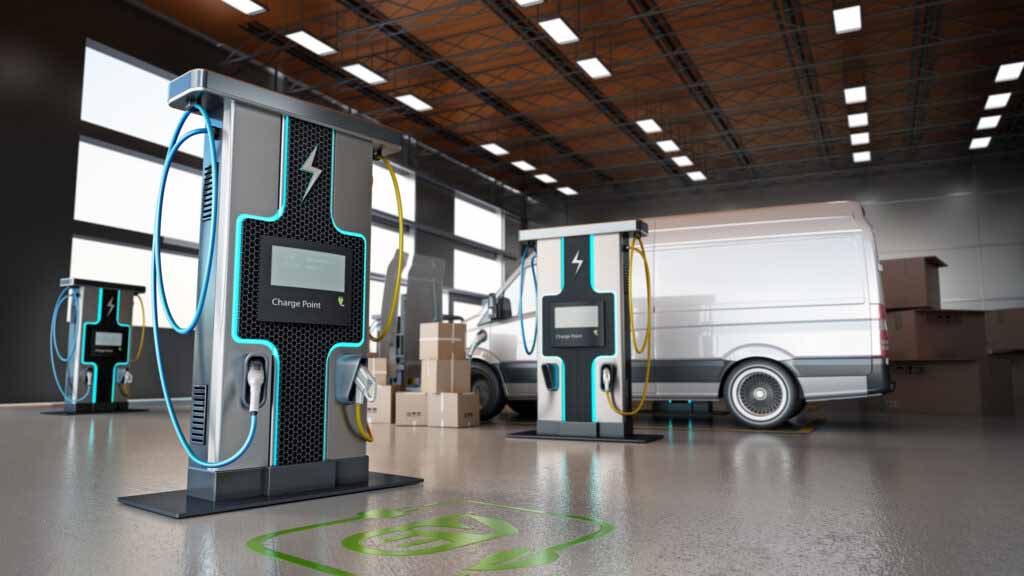Get ready to ride the wave of the future with DataField’s Commercial Electric Vehicle Charging Station Planning & Design.

As society becomes increasingly conscious of carbon emissions and the need for sustainable practices, the demand for electric vehicles is skyrocketing. This trend creates a pressing need for a reliable and extensive charging network to accommodate the growing number of electric vehicles on the road. To those in the know, it’s crystal clear that there is a massive opportunity for companies looking to establish themselves as frontrunners in the EV charging industry.

With our expertise and guidance, we’ll propel your company to the top as the ultimate provider of EV charging solutions. Harnessing our knowledge and experience in the field, we’ll support you in developing a robust and scalable charging network to cater to the needs of consumers and businesses alike.
We know that becoming the go-to industry leader in EV charging is a challenging journey, but we’re confident that, with our backing, your company can reach these heights.

The initiative for building an EV charging network is most easily divided into two categories:
Both of these terms refer to the location of the EV charging station in relation to the utility meter which measures the customer’s energy consumption.
Behind-the-meter charging stations are typically situated on the customer’s side of the electric meter and generally cater to privately owned electric vehicle fleets. These types of stations are installed and operated by customers such as:
The customer covers the installation and operation of these charging stations which are connected to their electrical system. These stations may also include energy management and load-balancing solutions.

Front-of-meter charging stations are located on the utility side of the electric meter and are designed to serve the public. These stations are typically installed and operated by a third-party charging network provider or a utility company that may offer charging services to electric vehicle owners through a payment model.
The cost of installation and operation of these charging stations is typically handled by the charging network provider or utility company. However, some may involve cost-sharing arrangements with businesses that own or manage the location.

Our process is fine-tuned to help you plan the entirety of your network from the ground up. While this may seem like a daunting task, we’ll leverage our knowledge to drive you to your goals. Our experienced team provides services including but not limited to:
Market analysis involves a meticulous evaluation of the areas you’re interested in building your network. This includes pinpointing the most visible, convenient, and accessible locations for the charging stations based on factors such as traffic flow, proximity to power sources, and other considerations. We can provide an analysis and maps with information including:
We’re not just providing intel on a single site at this stage, but rather outlining an entire market area to help you create a scalable, robust network from which to work.
Utilizing our expertise, you’ll have comprehensive plans for putting your network into action. We’ll tailor the solutions to your needs. And our flexibility allows us to provide deliverables the way you’d like to see them. We offer recommendations as well as the rationale behind them while leveraging our in-depth research to help you make important informed decisions.

Navigating the intricate processes for permitting and compliance can put a damper on your progress. But with DataField at the helm, we’ve got you covered.
Our services include obtaining building permits, electrical permits, and any other permits required by local agencies and authorities. We coordinate and liaise with the agencies having jurisdiction and the utility providers to gather the permits your construction team will need to build your infrastructure. We even package the information neatly to your specifications.
Environmental permits may be required when charging station infrastructure is built in environmentally sensitive areas, such as wetlands or other protected areas. These permits are typically aimed at ensuring the installation and operation of the charging stations do not negatively impact the environment. This could require additional environmental assessments or mitigation plans, all of which DataField offers.
Right-of-Way (ROW) permits also may be required when charging stations are installed on public property such as sidewalks, streets, or highways. These permits are usually aimed at ensuring that the installation of the charging stations does not interfere with the public’s use of the property and does not pose a safety hazard.
DataField will take care of the following in coordination with ROW permitting:
If you’re looking to construct your network on privately-owned locations, landowner engagement is crucial. Trust DataField to consult with landowners for the required consent while navigating any land-use restrictions or zoning requirements.
As EV adoption continues to surge, the government is offering various initiatives to encourage and support the development of EV infrastructure. These initiatives come in the form of grants, tax incentives, and other financial incentives that can help offset the cost of EV infrastructure installation.
However, navigating the world of government grants and incentives can be challenging, especially for companies new to the process. That’s where DataField comes in. We offer grant writing services and resources to help companies take advantage of government initiatives to facilitate their EV infrastructure.
Our seasoned grant writers will identify the most relevant and lucrative grant opportunities available for your EV charging station project. We also assist with grant application writing, submission, and follow-up to help ensure your application stands out from the competition.

Commercial EV charging station design requires considerations like scalability, integration with existing infrastructure, and accommodating high-usage demands. Businesses also need to consider factors like employee access, customer convenience, and energy management systems.
The process includes assessing site feasibility, determining the appropriate charging level (Level 2, DC fast charging, etc.), optimizing layout for accessibility and safety, and ensuring compliance with local building codes and ADA requirements.
Benefits include attracting EV-driving customers, improving employee satisfaction, achieving sustainability goals, and potential revenue generation from charging fees.
The choice depends on factors like expected usage patterns, the average time customers or employees spend on-site, and budget. For example, DC fast chargers may be ideal for high-turnover locations, while Level 2 chargers work well for workplaces.
Commercial setups require a robust power supply and often involve coordination with utility companies to ensure sufficient capacity. Energy management systems may be needed to prevent overloading and reduce peak electricity costs.
Yes, many federal, state, and local programs offer grants, tax credits, and rebates to offset installation costs. These incentives vary by location and should be factored into the planning process.
Timelines depend on the project's complexity, permitting requirements, and any necessary infrastructure upgrades. Typically, the process takes several weeks to months.
Maintenance involves regular inspections, software updates, and occasional repairs to ensure reliability. Businesses should also plan for customer support and troubleshooting.
Yes, solar panels and other renewable energy systems can be incorporated to reduce electricity costs and enhance sustainability. Battery storage systems may also be used for energy efficiency.
This involves designing accessible parking spaces, proper signage, and ensuring safe pathways. Working with experienced designers familiar with commercial compliance requirements is essential.